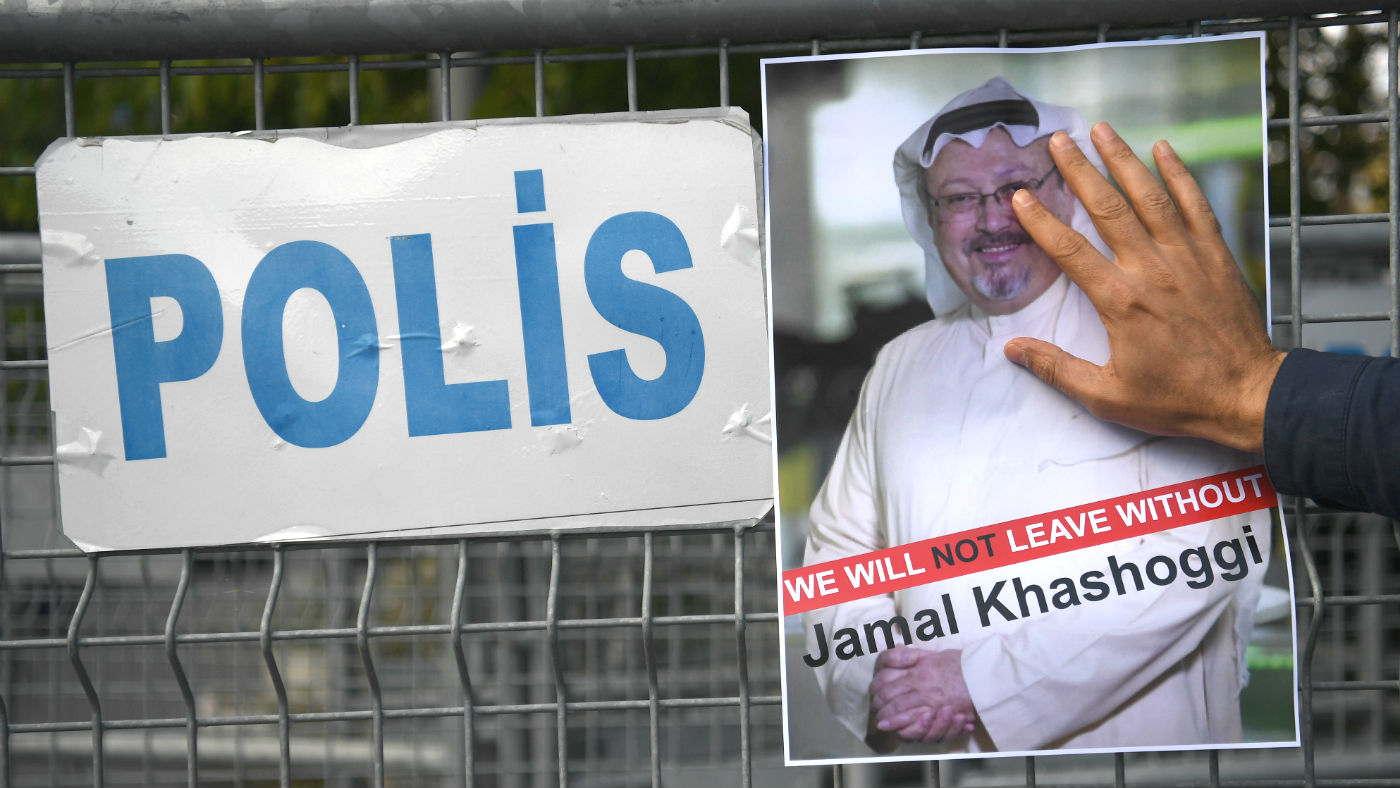What really happened to Jamal Khashoggi?
Turkish President rejects Saudi claim that murder was spontaneous

A free daily email with the biggest news stories of the day – and the best features from TheWeek.com
You are now subscribed
Your newsletter sign-up was successful
Turkey’s President Recep Tayyip Erdogan has firmly rejected Saudi Arabia’s claim that the death of Jamal Khashoggi was not premeditated.
Khashoggi, a journalist and prominent critic of Riyadh, was last seen entering the Saudi consulate in Istanbul on 2 October to collect documents for his forthcoming wedding. Turkish officials have claimed that Saudi agents murdered him and disposed of his dismembered body.
“Jamal Khashoggi was the victim of a ferocious murder,” Erdogan said today, underlining that the killing was not accidental, but meticulously planned. “This kind of brutality is against the collective human conscience.”
The Week
Escape your echo chamber. Get the facts behind the news, plus analysis from multiple perspectives.

Sign up for The Week's Free Newsletters
From our morning news briefing to a weekly Good News Newsletter, get the best of The Week delivered directly to your inbox.
From our morning news briefing to a weekly Good News Newsletter, get the best of The Week delivered directly to your inbox.
Erdogan’s address comes after Riyadh’s Foreign Minister Adel Al-Jubeir told Fox News on Sunday that Crown Prince Mohammed bin Salman had known nothing of any plan to kill Khashoggi, a move described by The Guardian as “an attempt to ease growing Western doubts about the credibility of the Saudi position”.
According to Sky sources, remains of the journalist have been found, with the body cut up and his face disfigured.
What have the Saudis said?
The Saudi regime initially said Khashoggi had left the consulate unharmed, before admitting at the end of last week that he was dead. They said he had been killed in a fight, a claim that was met with “widespread scepticism”, says the BBC.
A free daily email with the biggest news stories of the day – and the best features from TheWeek.com
“Until this point - for 18 days - the authorities had maintained that the Saudi critic was last seen leaving the building alive,” the broadcaster adds.
Jubeir's comments, describing the incident as murder for the first time, are among the most direct yet to come from a Saudi official.
“We are determined to find out all the facts and we are determined to punish those who are responsible for this murder,” he said.
“The individuals who did this did this outside the scope of their authority. There obviously was a tremendous mistake made, and what compounded the mistake was the attempt to try to cover up.”
What is Turkey saying?
Until recently, Turkish President Recep Erdogan had remained largely silent on the case. However, Turkey's pro-government newspapers “have released information detailing a 15-member Saudi team that purportedly arrived in Istanbul to confront Khashoggi at the consulate”, says Al Jazeera.
Today Erdogan claimed that Saudi officials searched out rural areas outside Istanbul the day before Khashoggi’s murder. He said Saudi’s suggestion that the killing was a rogue extradition operation gone wrong was unsatisfactory and Turkey’s investigation was ongoing.
“To blame such an incident on a handful of security and intelligence members would not satisfy us or the international community,” Erdogan said. “Saudi Arabia has taken an important step by admitting the murder. As of now we expect of them to openly bring to light those responsible - from the highest ranked to the lowest - and to bring them to justice.”
The Turkish president referenced the “sincerity” of Saudi Arabia’s King Salman in the investigation so far but did not mention his son, Crown Prince Mohammed bin Salman, who, it has been claimed, “was probably aware of and possibly even ordered the silencing of his prominent critic”, says The Guardian.
But there were “few new details in Erdogan’s speech, which fell short of the expectations he himself had set by claiming it would reveal the ‘full naked truth’”, says The Guardian’s Martin Chulov.
What has the world’s reaction been?
Western governments have become “increasingly dismissive of the often conflicting accounts of the journalist’s death provided so far”, says The Guardian.
Donald Trump told The Washington Post that there had been “deception” and “lies” in Saudi Arabia's explanation - a U-turn on his previous claim that their narrative was credible.
Trump added that he would “love” it if the crown prince was not responsible for the murder. The US president also raised the possibility of imposing sanctions but that said halting an arms deal with Saudi Arabia would “hurt us more than it would hurt them”.
The UK, France and Germany have issued a joint statement expressing shock at Khashoggi’s death and demanding a full explanation, saying: “Nothing can justify this killing and we condemn it in the strongest possible terms.”
British Foreign Secretary Jeremy Hunt spoke to Jubeir on Sunday to emphasise the British view that “nothing can justify this killing” and that the claims about Khashoggi died were not regarded as credible.